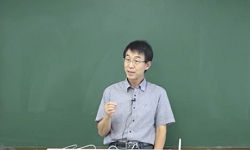This paper will investigate the possibility that EFL learners can learn the sentence parsing algorithms. This approach stems from Kim et al.'s (2013, 2014) ERP studies which show some changes of EFL learners' parsing results by educating them English ...
http://chineseinput.net/에서 pinyin(병음)방식으로 중국어를 변환할 수 있습니다.
변환된 중국어를 복사하여 사용하시면 됩니다.
- 中文 을 입력하시려면 zhongwen을 입력하시고 space를누르시면됩니다.
- 北京 을 입력하시려면 beijing을 입력하시고 space를 누르시면 됩니다.
https://www.riss.kr/link?id=A101016689
- 저자
- 발행기관
- 학술지명
- 권호사항
-
발행연도
2015
-
작성언어
-
- 주제어
-
KDC
701
-
등재정보
KCI등재
-
자료형태
학술저널
- 발행기관 URL
-
수록면
651-674(24쪽)
- 제공처
-
0
상세조회 -
0
다운로드
부가정보
다국어 초록 (Multilingual Abstract)
This paper will investigate the possibility that EFL learners can learn the sentence parsing algorithms. This approach stems from Kim et al.'s (2013, 2014) ERP studies which show some changes of EFL learners' parsing results by educating them English parsing strategies. Referring to these studies, this paper will assume that learning parsing algorithms can lead the results of learning to be changed into getting closer to the level of English L1 speakers. To justify this assumption, this paper will identify the relevant evidence that the essence of the sentence parsing can be learned while we reanalyze EFL leaners' syntactic responses from the previous ERP studies. Furthermore, this paper will also present the theoretical foundation to assume the possibility of learning parsing algorithms resulted from the language recursion: a property of human languages (Hauser et al. 2002, Jackendoff and Pinker 2005, Pinker and Jackendoff 2005). Through this investigation, this paper will claim that, though parsing algorithms vary according to the particular grammars, not only might parsing operations be correlated to the recursion of language, but also parsing algorithms can be learned by EFL learners due to the language property common to human-beings.
동일학술지(권/호) 다른 논문
-
- {ㄹ/을} - 를 수반하는 종결어미들 의 어휘적 속성
- 한국생성문법학회
- 최현숙(Choe Hyon Sook)
- 2015
- KCI등재
-
Some Notes on Ko’s (2014b, 2015) Hybrid Approach to the Korean RDC
- 한국생성문법학회
- Daeho Chung
- 2015
- KCI등재
-
Fragments in Korean: A Direct Interpretation Approach
- 한국생성문법학회
- Jong-Bok Kim
- 2015
- KCI등재
-
Genitive Case and Complex Spatial PPs in Korean
- 한국생성문법학회
- Jaehoon Choi
- 2015
- KCI등재





 스콜라
스콜라






